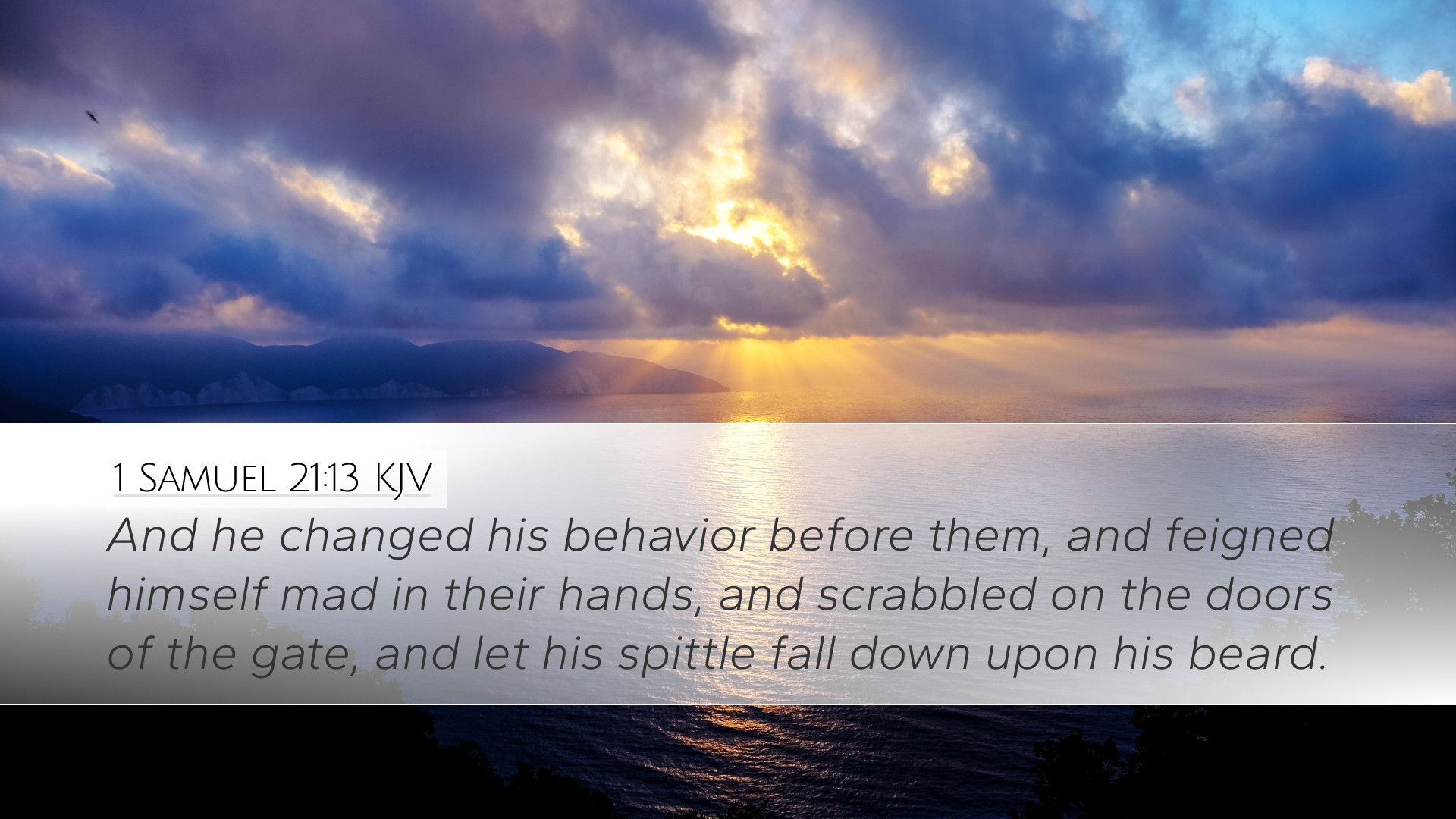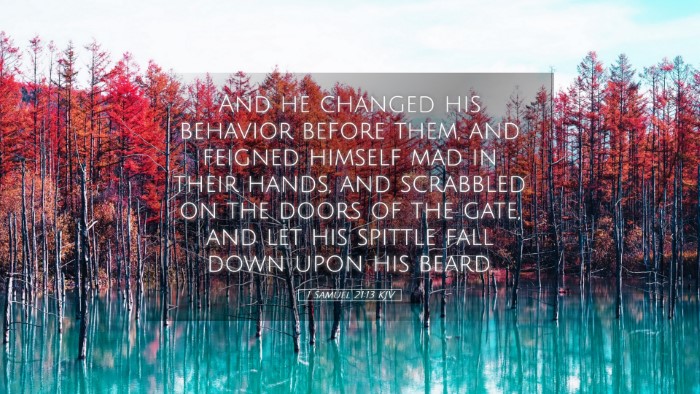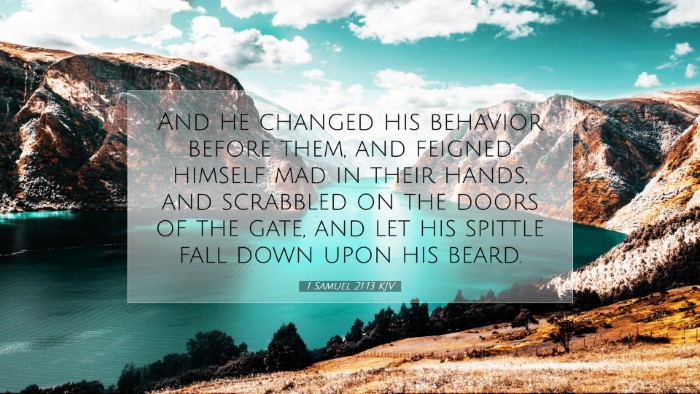Commentary on 1 Samuel 21:13
Bible Verse: 1 Samuel 21:13 - "So he changed his behavior before them, and feigned insanity in their hands, and scribbled on the doors of the gate, and let his spittle run down upon his beard."
Introduction
This verse captures a significant moment in the life of David, where he, in a moment of desperation, feigns madness to escape the grasp of King Achish of Gath. Various public domain commentaries provide insights into the implications of his behavior, the context of this event, and the theological lessons that can be drawn from it.
Contextual Analysis
In the broader narrative of 1 Samuel, David is a fugitive fleeing from Saul, who is intent on taking his life. Seeking refuge, David arrives at Gath, but instead of finding safety, he is recognized and feels threatened by the Philistine king Achish. The act of feigning madness serves as a pivotal narrative device, illustrating David's cunning and reliance on God's providence, even in distress.
Insights from Matthew Henry
Matthew Henry emphasizes the desperation of David's situation:
-
Desperation Leads to Deception: Henry points out that David's pretense of madness was born out of great fear and anxiety. It reflects the extremities to which individuals may go when cornered by peril.
-
Fear of Man vs. Trust in God: He notes that while David acts irrationally to evade danger, this serves as a reminder to rely on God rather than fearing human power.
-
Divine Preservation: Ultimately, David's escape is seen as an act of divine intervention, showing that God can work through unexpected means.
Reflections from Albert Barnes
Albert Barnes delves into the rationale behind David's behavior:
-
Rationale of Actions: Barnes suggests that David likely assumed that by appearing insane, he would provoke disdain and pity rather than aggression from the Philistines.
-
Madness as a Strategy: He elaborates that the act of madness shows David's strategic thinking. This tactic was a prudent measure for self-preservation amid a foreign and hostile environment.
-
Foreshadowing God's Protection: Barnes indicates that this incident foreshadows David's eventual rise to power, highlighting that God's plans for His anointed will not be thwarted by human machinations.
Insights from Adam Clarke
Adam Clarke offers a more detailed commentary on the nature of the act itself:
-
Physical and Mental State: Clarke notes the unnatural behavior demonstrated by David, describing the physical act of spitting on his beard as an extreme measure, accentuating his portrayal of insanity.
-
Psychological Weariness: He points out that David's predicament illustrates the psychological toll that constant fear and pursuit can take on an individual.
-
God's Provision Amidst Trials: Clarke underscores that even in moments of faltering faith, such as David’s, God’s overarching plan leads to a resolution for His chosen.
Theological Reflections
This verse invites theological reflection on the nature of trust and human ingenuity in the face of adversity. It challenges pastors, theologians, and students of the Bible to consider:
-
The Nature of Faith: How does faith manifest when one finds themselves in dire circumstances? David's choice to act madly may lead us to question when it is appropriate to employ human wisdom versus exercising unwavering faith.
-
The Role of Providence: The way God protected David illustrates the belief in divine providence, prompting deeper inquiry into how God intervenes in our lives today, orchestrating situations that seem dire to ultimately fulfill His plans.
-
Human Dilemmas and Divine Solutions: The tension between human actions and divine outcomes raises questions for modern believers regarding their responses to crises and challenges.
Conclusion
In summary, 1 Samuel 21:13 stands as a profound instance in David's life that showcases God’s providence amid human frailty. Through the insights of various commentators, we can grasp the weight of this narrative and its implications on faith and conduct for Christians today. David’s experience remains a testament to the complex interplay between fear, wisdom, and reliance on God.


